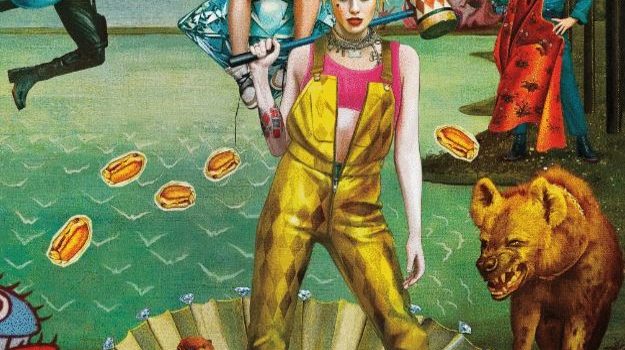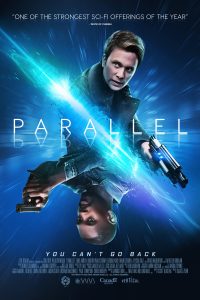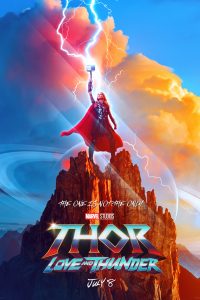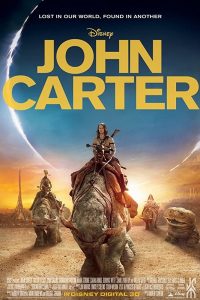Homicide Squad: Josh Pearce and Arley Sorg Discuss Birds of Prey: And the Fantabulous Emancipation of One Harley Quinn
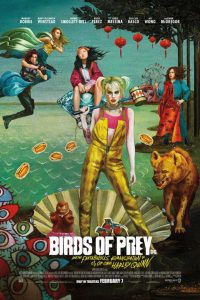 Infamous DC Comics character Harley Quinn (née Harleen Frances Quinzel) changes out of her manic pixie dream girl role for Birds of Prey: And the Fantabulous Emancipation of One Harley Quinn. This latest film in the DC Universe begins immediately after the Joker dumps Harley Quinn (Margot Robbie). The end of their relationship marks the end of her protected status in the criminal underworld. Her singular goal — to seek emotional comfort by eating her favorite sandwich — is offset when a host of criminals hear about the breakup and go after Quinn, wanting revenge for a range of (often violent) things Quinn did to them when she was untouchable. The biggest threat is crime boss Roman Sionis (Ewan McGregor), who becomes Black Mask whenever he dons his costume.
Infamous DC Comics character Harley Quinn (née Harleen Frances Quinzel) changes out of her manic pixie dream girl role for Birds of Prey: And the Fantabulous Emancipation of One Harley Quinn. This latest film in the DC Universe begins immediately after the Joker dumps Harley Quinn (Margot Robbie). The end of their relationship marks the end of her protected status in the criminal underworld. Her singular goal — to seek emotional comfort by eating her favorite sandwich — is offset when a host of criminals hear about the breakup and go after Quinn, wanting revenge for a range of (often violent) things Quinn did to them when she was untouchable. The biggest threat is crime boss Roman Sionis (Ewan McGregor), who becomes Black Mask whenever he dons his costume.
Quinn’s plotline gets tangled with the plotlines of a few others characters: Dinah Lance/Black Canary (Jurnee Smollett-Bell), who is trapped as a club singer by the same crime boss; detective Renee Montoya (Rosie Perez) who is undervalued and passed over for promotion; Helena Bertinelli/the Huntress (Mary Elizabeth Winstead), who is on a personal mission and kicks ass doing it; and pickpocket extraordinaire Cassandra Cain (Ella Jay Basco), who picked the wrong pocket one day and landed in more trouble than she could handle.
Arley: This was a fun action movie.
Josh: I thought it was fine. I didn’t find a lot to complain about, but also not a lot to praise, either. Several parts were visually interesting, at least, and I couldn’t decide if we should compare this movie to Suicide Squad or to Joker, or to both.
Arley: Right. Well, to neither, really. Suicide Squad was terrible. It was monotone.
Josh: You can’t have a review of this movie without it being in conversation with other DC movies.
Arley: Joker is somebody’s weird interpretation. It’s a random one-off. To me, it doesn’t count as a DC movie in the same sense. It’s practically a different character with the name slapped on.
Josh: Most people probably won’t make those same distinctions, going into the theater. You wouldn’t compare continuity, maybe, but you can compare creative decisions because they are all under the DC umbrella. This is a sequel to Suicide Squad, and Joker was the most recent DC movie.
Arley: Well — I’d say this is less of a sequel to Suicide Squad and more of a correction. Maybe. It’s like, they’re attempting to infuse a neglected female character with actual character. She’s not just a wacky sidekick anymore. The other characters, granted, are somewhat quickly sketched, but Harley is more fully realized.
Josh: Also, the title is misleading. This is not a “Birds of Prey” movie, it’s a “Harley Quinn” movie, and the full title is just terrible.
Arley: Harley is usually a problematic character. Having an all-female cast, female writer (Christina Hodson), and female director (Cathy Yan), created a promise for me that this movie would be different, would be more interesting, and that they might do something cool with the character.
Birds of Prey is a powerhouse as an action movie, with dynamic scenes making full use of sets and environment, and the kinds of stunning stunts which made Jackie Chan internationally famous. Not only are the fights well choreographed, they are varied: from a sequence reminiscent of the Domino effect in Deadpool 2 to acrobatic dance-like moves with props to different types of gun-based battles. Everything builds nicely, right up to a wonderful, big battle climax in a setting very reminiscent of the comic book Joker character: the iconic run-down amusement park! The action stays interesting, never relying too much on any one type of action: sure, there are explosions, but it’s not just explosions. Sure, there are fight scenes, but each is totally different from the previous one. It’s high energy and entertaining and, occasionally, amazing. The stunt doubles deserve huge acknowledgement and whoever choreographed should get an award.
There’s just enough over-the-top to everything to remind the viewer, hey, this is just a comic book. Have fun! From the humor throughout, to comic-book style graphic images, to inventive elements like a grenade launcher with glitter bombs. A big, colorful explosion at the beginning sets the tone, along with the over-the-top way the explosion is pulled off. The main characters still comport some sense of vulnerability and limitations, and the bad guy kills a few people early on, which keeps the movie from spinning completely out of control. Yes, it’s a comic book. But it’s also a movie.
Josh: Margot Robbie is such a great actress overall. She was really good in I, Tonya, and pretty much just carried this movie. At first I thought her accent in this was over the top, but I know that fits the Harley Quinn character, so eventually it faded out of my attention. In contrast, though, Detective Montoya has the same accent, even more exaggerated, and I found it distracting.
Arley: That’s the way Rosie Perez actually talks though.
Josh: Oh shit, really? Well okay, then. Still a bit distracting. I enjoyed Ewan McGregor’s role, and all the weird choices he made with the character. All the other villains had such bad accents, they sounded like Dick Tracy goons.
Arley: Black Mask for me was kind of a weak villain. Like, he’s supposed to be wild and manic, but Harley is even more unpredictable. His sidekick was the one pulling his strings and was way scarier. Also, super gay vibes. What about the other actors?
Josh: I was expecting more from Mary Elizabeth Winstead, but she had an almost entirely nonspeaking role. And I was initially really excited to see Ali Wong’s name on the poster, because she’s wonderful, but she’s barely in the film, so don’t get your hopes up.
Arley: My favorite actor was actually the pickpocket kid. She had a lot of really subtle moments, quiet moments, where she delivered a lot through nonverbal communication. And when she did speak more, she totally sold it for me.
Josh: I like the character concept of Harley Quinn and the overall look. “Crime clowns” is a fun genre. I thought it was a really cartoonish movie — there are parts where I was like, this is totally unrealistic, but it’s fine, it’s a cartoon, I’ll allow it! The colors were nice, but I wish there were more.
Arley: I loved the colors! I thought it was super colorful!
Josh: I was expecting more garish spectacle, like Into the Spider-verse or Speed Racer.
The humor of the movie is solid throughout, setting the right tone from the beginning. There are little jokes, big jokes, and everything in between. From breaking the fourth wall to quips to dark humor to goofy moments to writerly nods and even those little things which just make sense but you never see in action movies — the clever works on different levels and if you don’t like some of it you’ll probably love most of it. Unlike Star Wars: The Rise of Skywalker, where too many characters attempt Han-Solo-wannabee quips and end up having one ineffective voice, characters in Birds of Prey have character appropriate humor: Huntress is a bit awkward, Quinn is over-the-top, Montoya’s lines come with a side of attitude, and so on.
Arley: They tied different parts of the story together well, using a lot of cool flash backs.
Josh: The nonlinear storytelling did tie things together but it made it harder for me to care about the characters. They’d introduce someone, then immediately jump back to fill in their backstory, then jump back into the action again. I guess it’s very hectic and manic, which matches Harley’s way of speaking. The entire idea of this movie is: can a manic pixie dream girl carry a movie?
Arley: I mean, she is manic, but they made her more than that. Like, she actually uses her Ph.D. They want to remind people she’s actually really smart. They give her agency. Giving her goals of her own, a quest of her own, nudges her out of that trope and into fully realized character mode.
Josh: I was actually trying to figure out what the message of this movie was. Striking out on her own so she can commit crime?
Arley: Well, she’s a villain.
Josh: Obviously.
Arley: She has kind of a noble undertaking for the duration of the movie.
Josh: No, her entire motivation is saving her own ass. Does survival alone count as a noble cause if it’s a villain? Her success is bad news for everyone else. Nowhere in any of that did I see anything that redeems all the terrible shit she’s done (and continues to do), and the movie basically says she can’t be held responsible because she’s mentally ill.
Somewhat similar to Joker, Quinn’s character is morally reprehensible, and fairly unapologetically so. The narrative attempts to elicit sympathy for her by virtue of the fact that her existence has been as a subordinate to the murderous Joker (character, not Joaquin Phoenix) who never cared about her, and that her quest here is to be free of the need to rely on someone who is even worse than her. There’s that, and the fact that major motion pictures where women have any kind of actual power, let alone ass-kicking power, are too rare, and therefore inspire an excitement on that merit alone. Again, similar to Joker, audience members will likely find themselves waiting for the “heart of gold” story thread to come to the fore, to be mostly disappointed. Unlike Joker, the filmmakers draw a careful line about whom Quinn actually hurts, and how, and to what degree. Spoiler: she has a faint glimmer of gold, arguably, but at the end of the day, her quest for emancipation aside, she is a cold-hearted villain. This will taint the effect of the movie for some viewers; others may find it palatable, overlooking her sins for the movie’s dazzle, and perhaps even enjoying her easy going, bone-crushing ways. The narrative, which breaks the fourth wall from time to time, demonstrates a self-awareness around this issue, pointing out multiple times in multiple ways that Harley Quinn is an asshole.
She even admits it herself: “I’m a terrible person.”
Then again, our culture’s stories are rife with questionable characters which readers and viewers root for. From manipulative and arrogant Mr. Rochester in Jane Eyre to selfish capitalists like Harvey Specter in Suits to drug dealers Walter White (Breaking Bad) and Nancy Botwin (Weeds) to serial killers like Dexter and American Psycho‘s Patrick Bateman. Jaime Lannister in both Game of Thrones and A Game of Thrones throws a kid out a window and yet people eventually root for him, conveniently overlooking that he’d probably do it again if it meant winning. Even historical figures, such as Al Capone and Bonnie and Clyde, killed innocent people yet end up being idealized and romanticized.
With Harley Quinn, your results may vary; ours did. Nonetheless, the theme of women finding empowerment is consistent throughout this movie, in messaging and character story arcs, with each of the Birds of Prey on their own track to get the better of their circumstances. Harley Quinn’s nature may leave you feeling sour, or you may overlook it by strength of the overall theme. And the ass-kicking.
The movie also features many strong statements on gender roles and inequality. Some are subtle or clever, like the line, “Nothing gets a guy’s attention better than violence,” and others are a bit more heavy-handed, such as a scene where Quinn explains the role of the harlequin to Black Canary. The framing of shots visually treats the characters as protagonists and action heroes instead of sex objects, and scenes which might otherwise be sexually charged play out very differently. Even the soundtrack is predominantly female-driven rock and pop.
Gender positivity is punctuated by the scale of femininity of the main characters, from a very androgynous pick pocket to a fem (but ass-kicking) singer. The implication is that womanhood can take different shapes and can present different ways but still be female. The diversity of the main characters is deliberate and awesome.
Josh: The directing had some Zach Snyder stylization to it, and despite what his later movies have become, I mean that as a compliment. The slow-motion action which he does a lot starting with 300, and some of the combat moves that were similar to that and to Wonder Woman (which he also worked on) are noticeable in Birds of Prey, but I was really reminded visually of Sucker Punch during several scenes. Not the same color palette exactly, but more like the same filter. Even though Sucker Punch‘s plot is an incomprehensible mess, there are some similarities with Birds of Prey: it’s about a group of women violently escaping mental imprisonment, and its soundtrack also features a lot of pop songs remixed or covered by female artists.
Sarah Grey: “The actresses were either an athletic A cup or B cup or, if bigger, appeared to have those things strapped down with an appropriate sports bra. I hate movies where they’re doing acrobatics in pushup bras and shit, because realistically, those fuckers will fall right out.”
Arley: We need to add a trigger warning. There were one or two moments that were kind of shocking. Graphic, bloody.
Josh: It is an R rated movie. I was actually expecting it to be more grim, but I still had fun overall. My biggest problem was in trying to find relatable messaging in this movie.
Arley: The relatable message is independence. I think people who feel disenfranchised in one way or another — myself included — will immediately love a character who just doesn’t give a fuck, especially if that character is up against the odds. Somehow we overlook or sideline the reprehensible nature of certain actions. Some people will find a sense of empowerment in seeing women kicking ass. I wish we saw that more often. I do root for her, I want her to win.
Josh: I just want her to get a breakfast sandwich.
Directed by: Cathy Yan
Written by: Christina Hodson
Starring: Margot Robbie, Rosie Perez, Mary Elizabeth Winstead, Jurnee Smollett-Bell, Ewan McGregor, Ella Jay Basco & Chris Messina

ARLEY SORG, Associate Editor, grew up in England, Hawaii, and Colorado. He studied Asian Religions at Pitzer College. He lives in Oakland, and usually writes in local coffee shops. A 2014 Odyssey Writing Workshop graduate, he is soldering together a novel, has thrown a few short stories into orbit, and hopes to launch more.
JOSH PEARCE, Assistant Editor, started working at Locus in 2016. He studied creative writing at SFSU and has sold short stories and poems to a variety of speculative fiction magazines. Born and raised in the Bay Area, he currently lives in the East Bay with his wife and son and spends way too much time on Twitter: @fictionaljosh. One time, Ken Jennings signed his chest.
 While you are here, please take a moment to support Locus with a one-time or recurring donation. We rely on reader donations to keep the magazine and site going, and would like to keep the site paywall free, but WE NEED YOUR FINANCIAL SUPPORT to continue quality coverage of the science fiction and fantasy field.
While you are here, please take a moment to support Locus with a one-time or recurring donation. We rely on reader donations to keep the magazine and site going, and would like to keep the site paywall free, but WE NEED YOUR FINANCIAL SUPPORT to continue quality coverage of the science fiction and fantasy field.
©Locus Magazine. Copyrighted material may not be republished without permission of LSFF.


